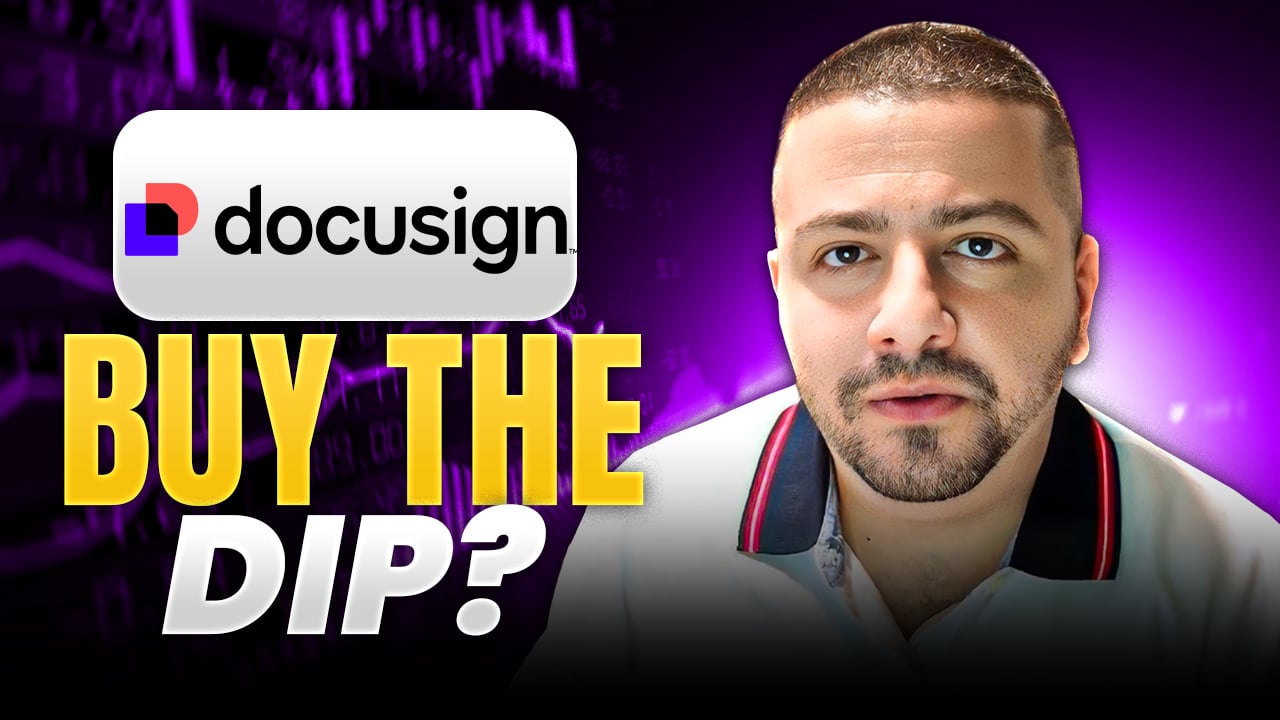Wall Street's focus on high-growth tech stocks has left other notable names trading well off their highs. Prominent billionaire investors with a record of identifying winners in the stock market are starting to shift money to more reasonably priced tech stocks due for a rebound.
Fortunately, wealthy investors who manage multibillion-dollar funds are required to disclose their holdings every quarter on Form 13F with the Securities and Exchange Commission. This provides a treasure trove of promising opportunities for retail investors.
In the second quarter, billionaires were buying two stocks of growing companies that are trading well off their previous highs but could be on the verge of a recovery.

Image source: Getty Images.
1. DocuSign
Two prominent billionaires with a history of making astute investments that earn wealth-building returns were buying shares of beaten-down growth stock DocuSign (DOCU 5.56%) in the second quarter.
The once high-flying stock during the pandemic is sitting 76% below its all-time high in 2021. This has drawn the interest of Stanley Druckenmiller, who manages his wealth through the Duquesne Family Office LLC, and famed activist investor Daniel Loeb of Third Point Capital.
The eSignature company was all the rage on Wall Street during the pandemic, when digital services were in high demand. The company is not growing as fast as it was in 2020, but it is still growing, and importantly, it is generating healthy profits. What's probably got Druckenmiller and Loeb's attention is that management is aiming for higher revenue growth after launching its new Intelligent Agreement Management (IAM) platform.

NASDAQ: DOCU
Key Data Points
While the company faces competition in its core e-signature product from digital software leader Adobe, DocuSign is expanding its offering from its flagship electronic signature product to using AI that automates the whole process of working through new business agreements, such as managing and creating contracts, which significantly expands its addressable market.
The company reported a year-over-year revenue increase of 8% in the most recent quarter. But as demand for artificial intelligence (AI)-powered products continues to grow, management expects top-line growth to accelerate. Sales of IAM exceeded expectations last quarter, putting it on pace to achieve a double-digit percentage of its subscription business by fiscal Q4.
Druckenmiller and Loeb seem to favor DocuSign's promising initiatives with AI-powered products, along with its ability to leverage an extensive partner ecosystem with leading cloud services to drive growth with large enterprises. Moreover, the stock is more reasonably valued, trading at 17 times trailing free cash flow.
Through his Duquesne Family Office, Druckenmiller initiated a position in the stock of about 1.1 million shares in Q1 and increased the stake to nearly 1.3 million shares in Q2. Meanwhile, Loeb started a new position in the stock in Q2 by purchasing 625,000 shares.
As the tech bull market continues in 2025, these investors are clearly looking for discounted growth stocks that offer decent growth prospects at an attractive valuation, and they may have found a gem in DocuSign.

Image source: Getty Images.
2. Block
Another fallen Wall Street darling that is drawing interest from notable billionaires with an impressive record of earning market-beating returns is Block (formerly Square) (XYZ 4.26%), which owns the Cash App.
Chase Coleman of Tiger Global Management and David Tepper of Appaloosa Management previously bought shares of Block during the pandemic when the Cash App was driving strong growth for the company. After eventually selling out as momentum faded, they are now adding to their stakes after starting new positions in the stock during the first quarter.
The stock is down 72% from its previous peak but appears to be on the verge of breaking out to the upside again. Block just reported a strong quarter, showing a notable 14% year-over-year increase in gross profit, driven by growth in Square and accelerating momentum in Cash App.

NYSE: XYZ
Key Data Points
While Square's gross payment volume grew at a solid 10% year over year last quarter, as the company focuses on driving adoption in the restaurant industry, the real momentum with the company right now is with Cash App.
Block is having success going after younger demographics for its peer-to-peer (P2P) payment business. CEO Jack Dorsey wants to build a complete money hub for customers by expanding its banking tools and launching new products. Over the past year, Cash App processed $218 billion in P2P volume.
The number of banking actives, or the number of people using Cash App for regular paycheck deposits or spending at least $500 per month, grew 16% year over year to 8 million in Q2. The growing usage of Cash App is opening a huge opportunity in borrowing, where Cash App Borrow has nearly doubled to $18 billion annualized originations, which contributed to Cash App's gross profit increase of 16% year over year in the quarter.
Block still faces a lot of competition in the payments space, where consumers have several choices for managing money. The stock is a relatively small position for Coleman and Tepper, which accounts for the risk that Block will fail to stand out from a crowded market in the long term.
Nonetheless, these investors are piling into it. Coleman doubled his firm's stake to more than 3.9 million shares in Q2, while Tepper increased his stake by 755% to 641,800 shares. These investors may like how Block's business benefits from a network effect advantage. As more people use the Cash App, it increases the value for others to use it when sending money. The company's continued growth suggests it is benefiting from its own set of advantages.
The stock undoubtedly offers investors better value today after falling sharply over the past few years. With analysts expecting the company to grow earnings at an annualized rate of 18% over the next several years, Block is a promising opportunity that could outperform the market.






